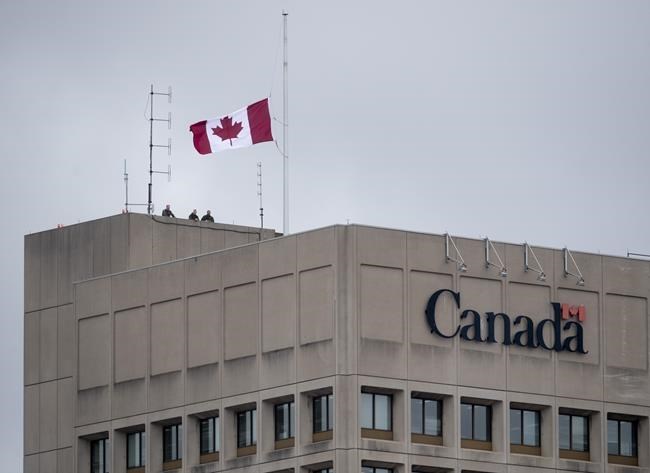OTTAWA — It has been nearly two years since a civilian employee at the Defence Department says she first lodged a workplace harassment complaint against one of her superiors and she says the bureaucratic stonewalling ever since has left her feeling defeated.
The woman, whom The Canadian Press agreed not to identify because she fears reprisal while she remains employed by the department, says it all started when she was asked to do work outside her job description, which she refused to do.
“As soon as I said, ‘No,’ there was a change in my entire work environment and how I was handled,” she said Tuesday in an interview.
When she stepped forward to report harassing behaviours by her male superior, the woman said she “stupidly assumed” someone would help her, given all the programs and services within the department aimed at addressing workplace violence and harassment.
Instead, she said she was labelled "sensitive" and her job — as a mental health support worker — was threatened by those who outranked her. She said the behaviours escalated with everything she tried to do to fix the situation.
"Basically at this point I feel I've already lost my career," she said. "My confidence in the department is basically non-existent at this point because I know how many people have been affected."
The woman’s experience is far from an isolated one, according to the unions that represent civilian employees at both the Department of National Defence and Veterans Affairs Canada. The unions arranged the interview with the unnamed complainant.
June Winger, national president of the Union of National Defence Employees, says civilian employees from every region are contacting union representatives with "horrific" tales of bullying and abuse, especially after recent high-profile allegations of sexual misconduct against top-ranking members of the Canadian Armed Forces.
"Harassment is alive and well at National Defence," she said in an interview.
"There's a common theme of harassment right throughout the department, and you can look at any section … It's a common thread everywhere."
Winger cited cases involving public servant firefighters working on military bases who have had their complaints of severe forms of harassment investigated and deemed "founded."
She said there have been cases where complaints of severe harassment have been investigated and deemed to be "founded," but recommendations that stem from these internal investigations are non-binding and often only superficially address concerns.
Often, these recommendations are simply ignored, she added, leaving employees with no further recourse except to go on stress leave, which she said is an increasing trend.
Virginia Vaillancourt, national president of the Union of Veterans’ Affairs Employees, says similar allegations, and treatment of complainants, is happening among a large number of her members too.
When the aggressors are not stopped, more people are victimized, she said.
"When you're having repeat offenders and nothing is being done and departments are turning a blind eye to those situations, that's where the systemic problems keep coming in," Vaillancourt said.
"They don't fix the situation, they blame the victim and they make the victim feel like they're the ones that have done wrong in that whole process."
The Trudeau government has faced mounting criticism of its handling of the issue of harassment in the military following recent allegations against former chief of defence staff general Jonathan Vance, and other high-ranking members of the military.
Vance has not responded to requests for comment by The Canadian Press, but Global News, which first reported the allegations in February, says that he has denied any inappropriate conduct. He is now being investigated by military police.
The Liberal government has tasked former Supreme Court justice Louise Arbour with reviewing how the military handles sexual assault, harassment and other forms of misconduct. It marks the second review by a retired Supreme Court justice in about six years.
Daniel Minden, press secretary for Defence Minister Harjit Sajjan, said neither the department nor the military deem any form of harassment acceptable.
“Though important steps have been taken to address the overall health and well-being of the defence team, we clearly have much work to do to bring about enduring change," he said in a statement Tuesday.
"Eliminating all forms of misconduct and abuse is a top priority for our government."
He added that recent changes to the Canada Labour Code that came into effect this year will help government to be "better equipped to prevent, respond to and provide support to those affected by harassment and violence in the federal public service."
Cameron McNeill, a spokesman for Veterans Affairs Minister Lawrence MacAulay, noted the minister has previously said harassment and discrimination have no place within the department.
"Ensuring a safe workplace for everyone remains one of his absolute top priorities," he said in a statement Tuesday.
Winger paused and laughed quietly to herself when asked if she thought the government's recent efforts and newly launched review by Arbour would finally address the concerns of employees she represents.
"I'll be the first one to be happily surprised, but too often it's just a half measure," she said.
"When it comes down to it, very little changes. People go back to where they're comfortable."
This report by The Canadian Press was first published May 5, 2021.
Teresa Wright, The Canadian Press



